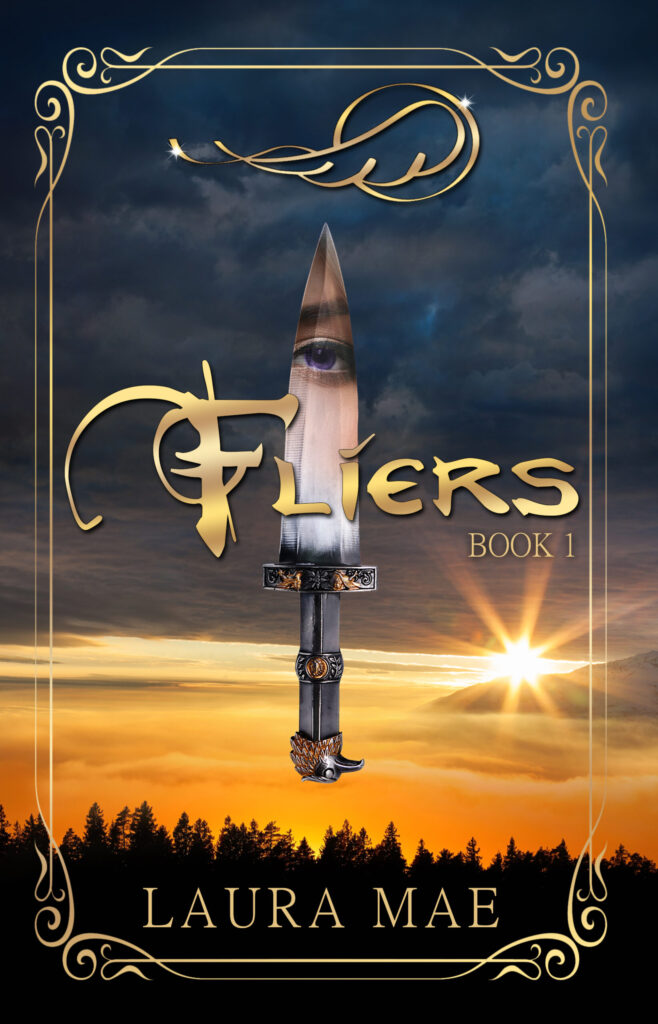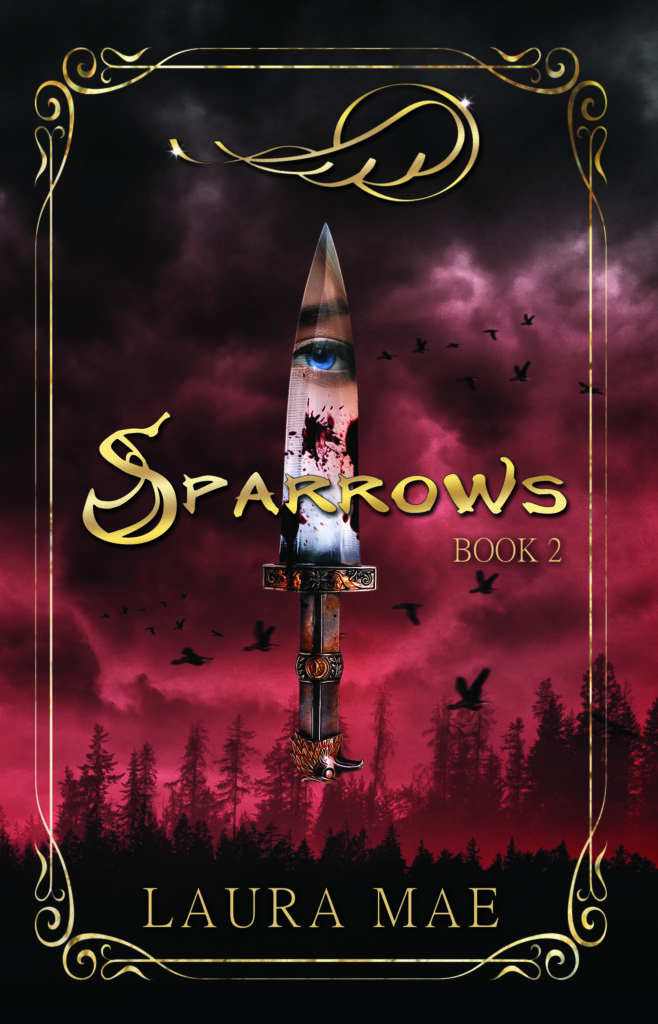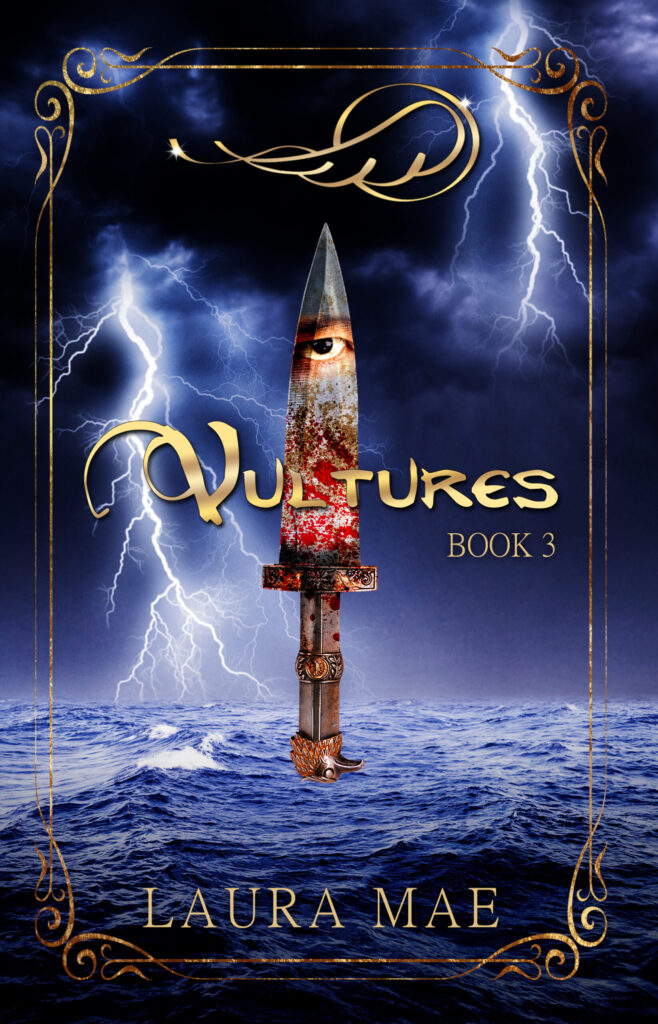
Author Interview: Laura Mae
Laura Mae was raised in the Midwest and now resides in Arizona surrounded by mountains and sunshine. As a fantasy fiction writer, she has an active imagination, constantly thinking of what-if scenarios and watches people for potential characters. Writing has always been a passion of hers since she was a child, drawing most of her inspiration from dreams. When she’s not writing, she takes care of her furbabies, loves to hike and be outdoors and plays video games for even more inspiration.
Hi Laura, thank you for this interview. Would you like to tell us more about yourself?
I was raised in the Midwest and now reside in Arizona surrounded by mountains and sunshine. As a fantasy fiction writer, I have an active imagination, constantly thinking of what-if scenarios and watch people for potential characters. Writing has always been a passion of mine since I was a child, drawing most of my inspiration from dreams. When I am not writing, I take care of my furbabies, love to hike and be outdoors and plays video games for even more inspiration.
So, Laura, when did you first realize you wanted to become an author and what motivated you to do so?
I couldn’t tell you the first moment I decided I wanted to be an author, but I do know the moment I wanted to publish my story. Being an author hadn’t quite hit me yet. The first story I wrote I had been working on for many years and I looked at some publishers (not understanding what vanity publishing was). But I decided to go onto some Facebook groups and saw that self-publishing was an option. When I looked into that, I took off running. My motivation was that I just wanted to get my story out there because I personally haven’t heard any stories quite like it and knew it was fairly original. It wasn’t something I could keep to myself.
That’s true and I have to say that your decision had me spending hours glued to your books. What was the most difficult thing you came across when you wrote your first book and how did you get past it?
Honestly, finishing it. As I said, I worked on it for about 7 years and I did a little bit here and there, but nothing really made me want to finish it. I was just doing it for fun. But I just kept at it and talked to some people about it and they got really excited about it. This was probably why I wanted to finish it because everyone I told about it seemed genuinely interested in it. They are why I am here today.
Did publishing your first book change your writing process?
Yeah, I suppose it did. Writing my second one definitely didn’t take me as long as the first, only about a year actually. I don’t write full time though, but I do try to write any time I have a writing bug or if I have been brainstorming and I just need to get it out!
How do you come up with the titles for your books and the name of your characters? “Fliers” is something that surely had been a part for me choosing to read your book.
The title Fliers was always a title I had in mind from the very beginning. And while it was a title I thought of, just to tell people what it was called (temporarily), I couldn’t think of anything else that would suit it better, so it just stuck. With Sparrows and Vultures, I wanted to keep in the “one-word” category to make them cohesive and also, it’s what the book is mostly based around. For my characters. that process is usually a bit more involved, and when I say involved I mean, I will spend hours looking on websites for baby names. I look at meanings, I say them several times out loud and I love the ones that I see it once, I know it’s perfect. Giovonna was one of those. 🙂
I didn’t know that. Now I have to ask. What does Giovonna mean?
It means “The Lord is Gracious” which does suit her as she is a very gracious person. But for some reason the sound of the name (and the fact her nickname is Gia – which is just as adorable as her) really brought it home to me. I like unique names and I haven’t heard or known anyone with this name, so it started as a clean slate.

What is the process you follow to develop your plot and your characters?
I am a panster. While I find it strange because I am normally a very organized person, outlines and I have never been able to get along. Though I have used very basic outlines, highlighting the major events in a story. But I don’t get very detailed because I usually want to dive right in and that’s when my creativeness comes out. Sometimes outlining seems like a waste of time that I could use better for writing the story.
Is there anything that aspiring authors should watch out when writing characters from the opposite sex?
I would say to stay away from clichés. And also, stay away from books that do that because they aren’t helping at all. Personally, I think I am an open-minded person who can empathize easily with others, so writing male characters isn’t hard for me. They are still people, they just have different parts! I kind of like writing males because you get to go inside a different perspective. Especially in my third book when I have more perspectives than just Sydona.
Do you spend much time with “world building” or do you start writing your book and figure out things in the process?
With this particular series, it’s set in the US in 1996 so I don’t think there is much world-building to be done. I don’t make it obvious it’s set in the 90’s, but I do put references to things that were common in that time to give the reader I slight clue of when it’s taking place without beating them over the head with it. If it was a high-fantasy series set in an alt-dim, then yes, I would probably spend much more time on that.
Do you have any writing “quirks”?
This made me laugh. Mostly because I don’t think I do! I write on Google Docs and I love the feature that lets you comment on certain things. When I am rereading and revising I will put notes to myself, even on things that make me laugh…

My office is filled with post-it notes, I can completely relate. Could you describe a typical writing day?
Oh boy, I can’t remember the last time I had a writing day. As I said earlier, I do not write full-time as I do have a job elsewhere (where I may or may not write there, too). If I catch the writing bug, I will write until I am either done for the day (at work), get way too busy or I wrote exactly what I wanted to.
What are your favorite genres to read and write about?
Fantasy is definitely my favorite. I’ve explored trying to write short stories that are not fantasy, and I find there is something missing. Like a dragon or a portal to another dimension. Makes it way more exciting, right?!
I love dragons and when I was little I wanted one as a pet. However, my dogs and cats are probably enough and easier to take care of than dragons. Do you have any particular scenes that make you emotional when you write them?
Any kind of death scene. Especially with more developed characters. I know the more I cry, the better the scene. Is that wrong?
Not at all, I’ve spent my fair share of time crying when a character dies, How long does it take you on average, to write a book?
Well I’ve only written 3, and Vultures took me about the amount of time to write as Sparrows, so I will say about a year to 2 years.
That’s great! When you finish a book, what is the next step for you?
After I finish the first draft, I move on to revisions because I don’t edit as I write. It like to do at least one thorough read through and make any needed changes. Then go back and do it again (where I’m less thorough) but still make any changes that jump out at me. Then it’s on the beta readers.
Did you ever have a writer’s block?
Many times! It sucks, but it is part of it.
How did you get passed it?
Anyone who is doing something creative will have this dilemma. Unfortunately, there is no one way to get over it. Sometimes you just have to have the document sitting in front of you, read it a little, then it might come crawling back. Other times, it just takes time. Lots of time. It’s good to step back from things and clear your mind and come back to it, days or even weeks later. There is no shame in this.

None at all. Was there anything you learned that surprised you while you were creating your books?
How terrible I was at writing! But seriously, when I decided to publish Fliers, I hired an editor and she helped me so incredibly much. I won’t say I’m a fantastic writer now, but I can tell you, based on what I’ve done before, I have made a huge improvement. It’s true when they say that writing more does make you a better writer. I’m excited to write more to see how much better I can perfect my craft.
Practice makes perfect indeed, and that is something we all need to understand. What was the best and most bizarre thing a reader has ever said to you?
The best thing was saying how much they loved my characters. I love my characters so much it hurts and when someone says how much they could relate, or loved everything they said or did, it makes me so happy.
I think the most bizarre thing would be how they couldn’t understand my main character. Or empathize with her at all. I get that everyone has their own opinions and not everyone likes the same things, but it puzzles me when they don’t relate to her or any of the characters at all. But I don’t let it bother me much. 🙂
As an indie author, in your opinion, what are the opportunities and drawbacks of independent publishing that aspiring authors should watch out and/or plan better for?
Being an indie-author is basically an entrepreneur. It’s a self-starting business and I think a lot of new writers don’t quite understand that. It takes a lot of planning, strategy and money. Having a social media presence well before publishing your first book seems to help a lot and it’s something most of us don’t do. And knowing when and how to market yourself and your books is foreign. It’s an extremely difficult thing to do if you want to be successful and make it into a career. It’s not enough to just write the book and sadly, that part is only a fraction of what authors have to do to make it big.
Could you give some pointers for aspiring indie authors?
The first thing I would say is to not focus on the reviews you’re getting. I know it’s exciting when you get them and when it good you want to shout it from the rooftops. But when the not so good ones slip in there, it can cause a lot of heartache and doubt. Reviews are for readers, not the writer. Another tip is to make sure you are getting your work professionally edited.
I think indie authors get a bad wrap for a lot of different reasons, but my logic is, to help stop the stereotypes of indie authors is to get your books professionally edited. The last thing you need is someone picking up your book, seeing you’re independent and then reading your MS riddled with spelling and grammar errors. They will probably assume from that book that all indie authors are just amateurs and can’t edit their books properly. For some reason, people think you need to be apart of a big publishing company in order to have perfect books. (Not true)
Certainly not true. In your experience, what are the faults of traditional publishing that pushed authors to take matters into their own hands and as a result, what are the changes that should be made in traditional publishing?
I have not traditionally published so I can only speak on what I’ve researched or know from other author friends. I’ve never tried this route as I am lazy and I would not do well under pressure. (deadlines, ect.) I think most people who get accepted think that once they’re “in”, they can sit back, relax and watch the money flow in because the company will do all that other stuff. You still have to have a social media presence, still have to market, advertise, strategize, ect. Of course, it’s not as much as you would have to do as an indie, but you definitely still have to do a lot of work. It’s still a career and /or how you obtain your income. Nothing that makes you money will come easily.
Now let’s go a few years back. As a child what did you want to do when you grew up?
Not an author! As much as I would like that answer to be. But to be frank, I wanted to be a lot of things. A veterinarian because I love animals, an interior designer, a cop, things like that. It’s funny how things work out when you become an adult.
What are your hobbies and passions other than writing?
I would consider myself an avid video gamer. Video games have been in my life since I can remember and I still play them on a daily basis. It’s probably helped me in wanting to tell stories (in a slightly different way). I also love to hike and being outdoors. Graphic Design is what I have a degree in and I love being able to create things and design. I do still have a thing for interior design and have almost gone to school for it.
Creativity is indeed your forte! Would you like to tell us more about your books?
Sure! While my book series is fantasy fiction, I try to make them as relatable as I can, especially when it comes to characters in certain situations. I touch on a lot of social issues that is still relevant for today. Including discrimination. With my books, my goal is to not just tell a unique story about people flying, but to get in deep and really show you who these people are. Everyone has their flaws, and has the ability to grow. But there are some who have flaws and never grow, no matter what. It’s the way life goes sometimes and I don’t like to sugar coat.
Thank you so much for this discussion, Laura. I had a great time. I wish you the best!
